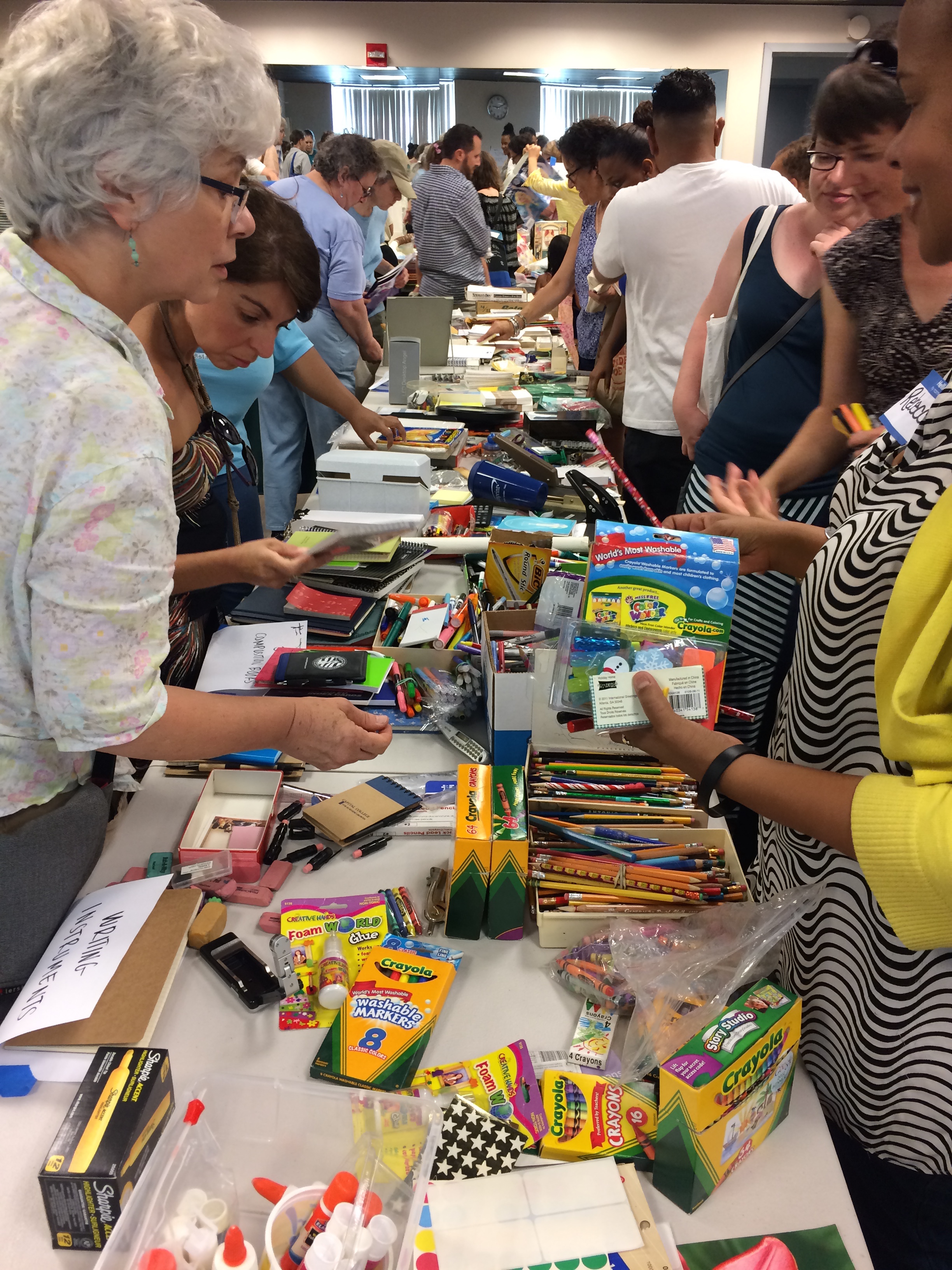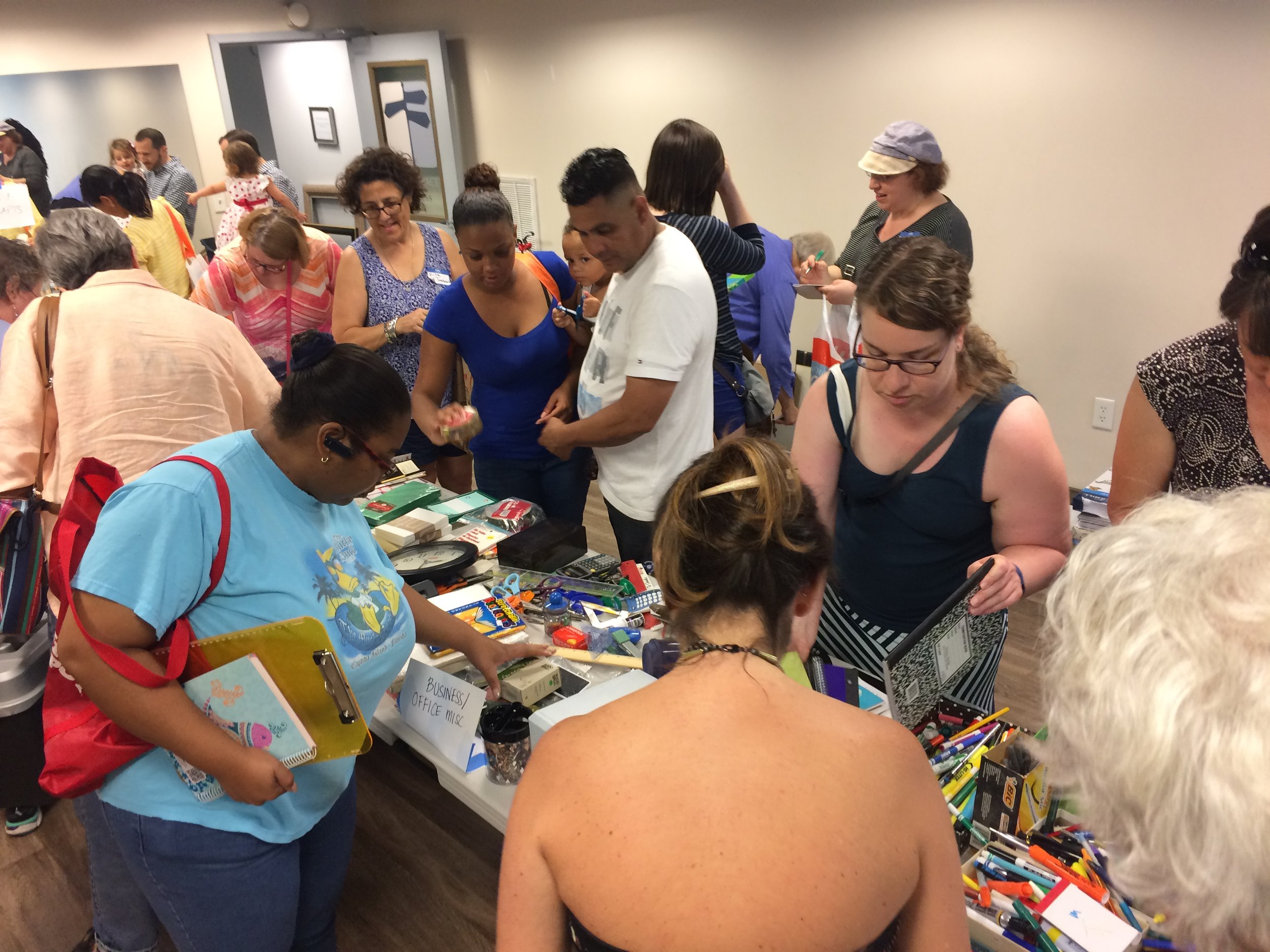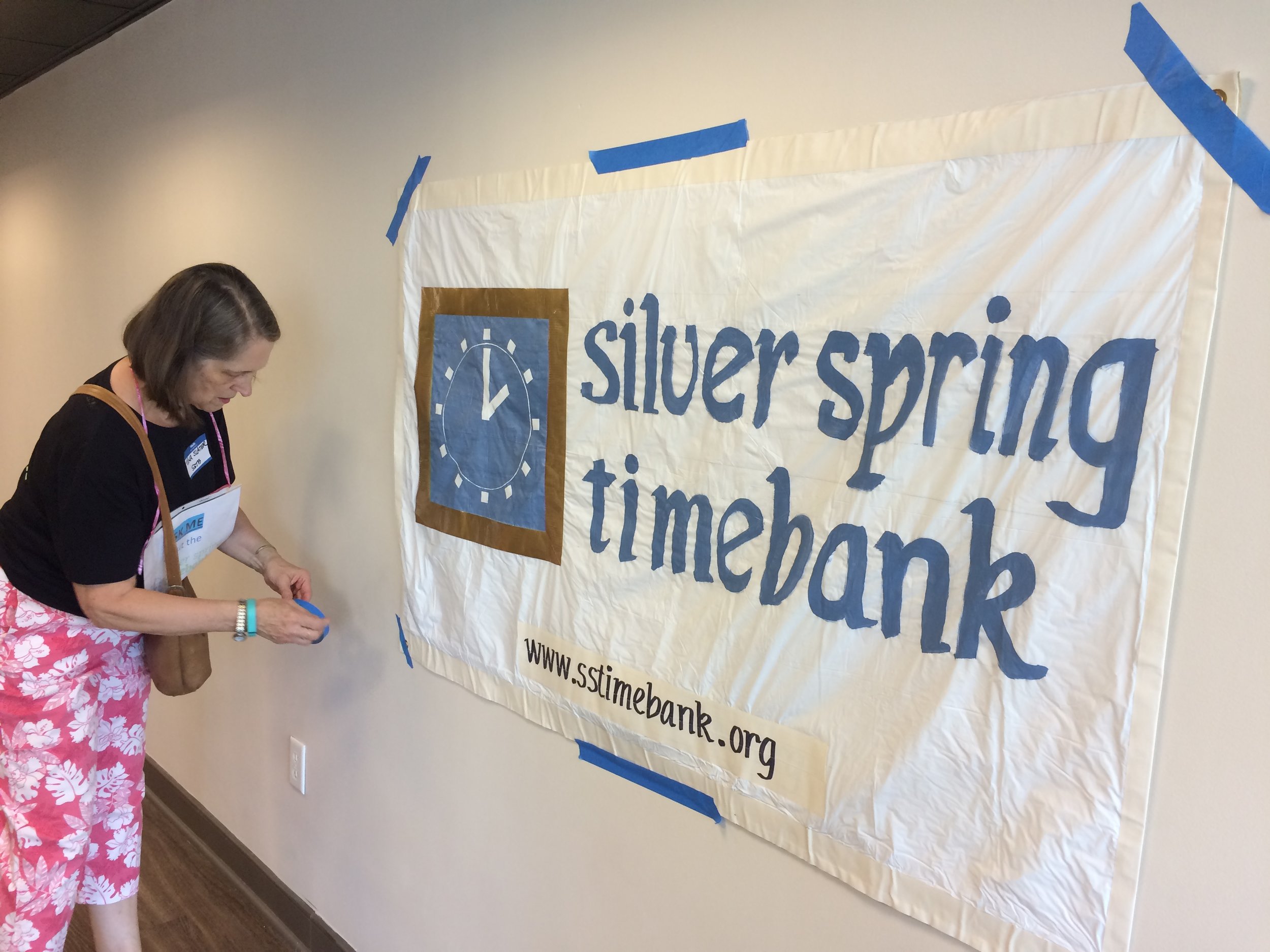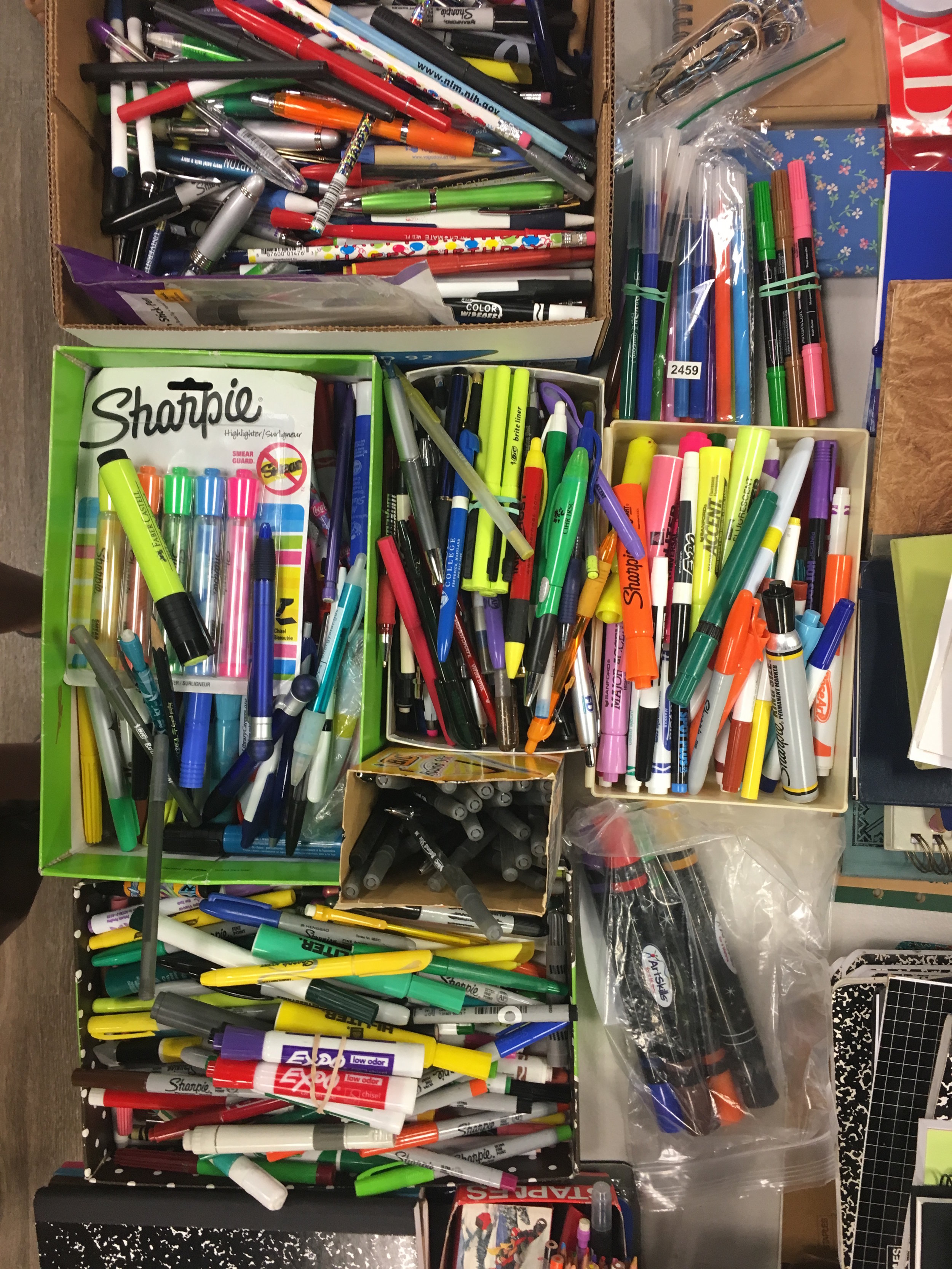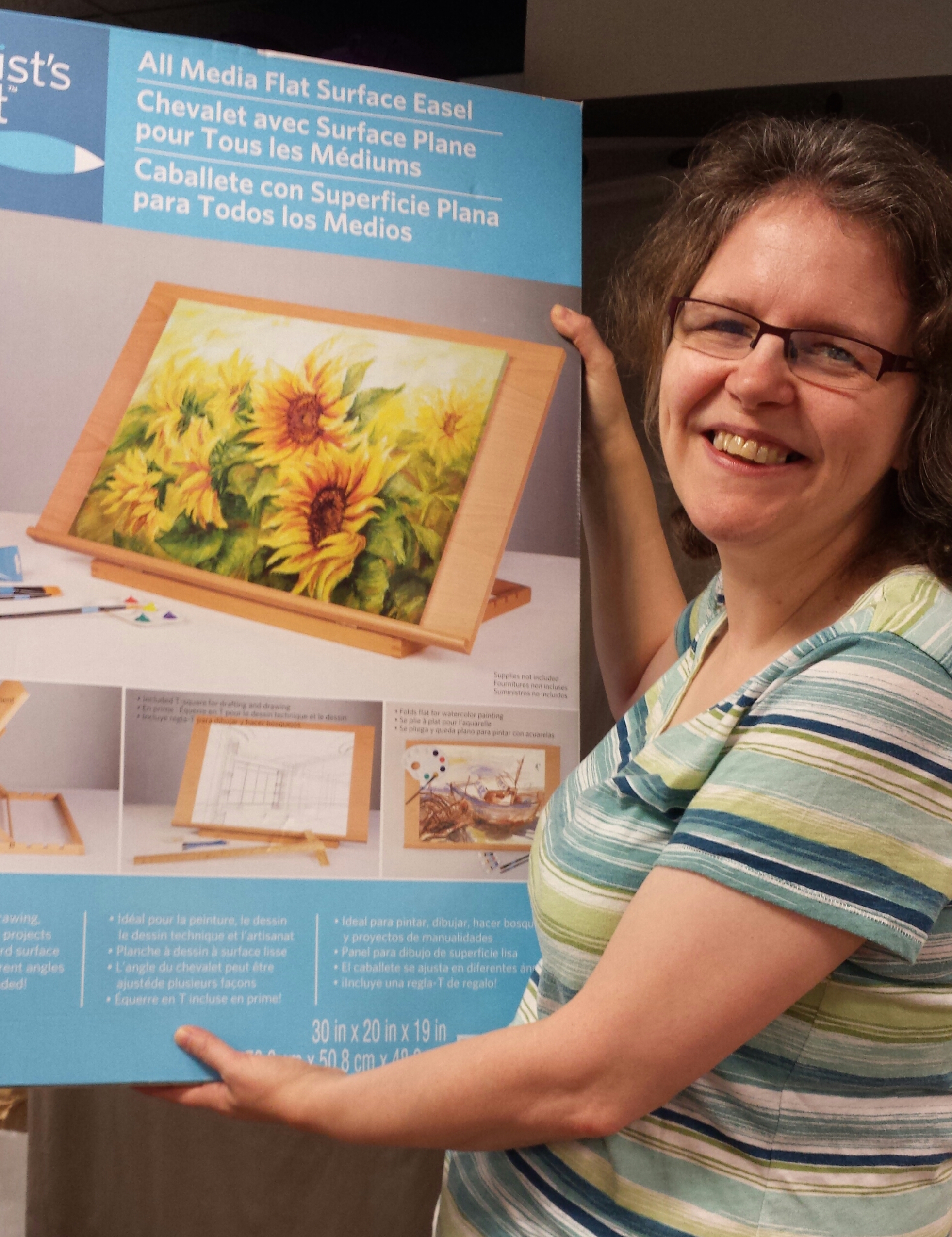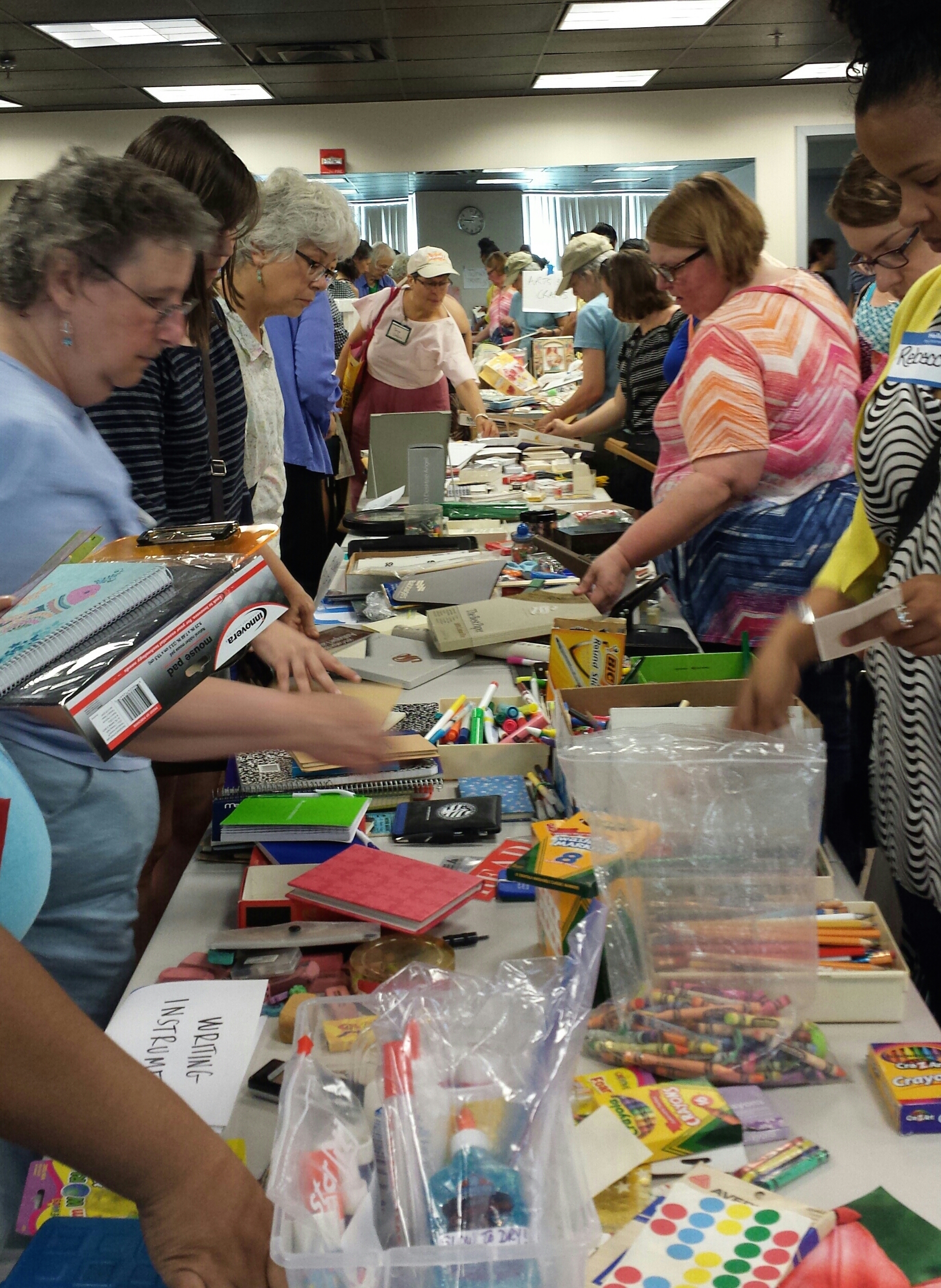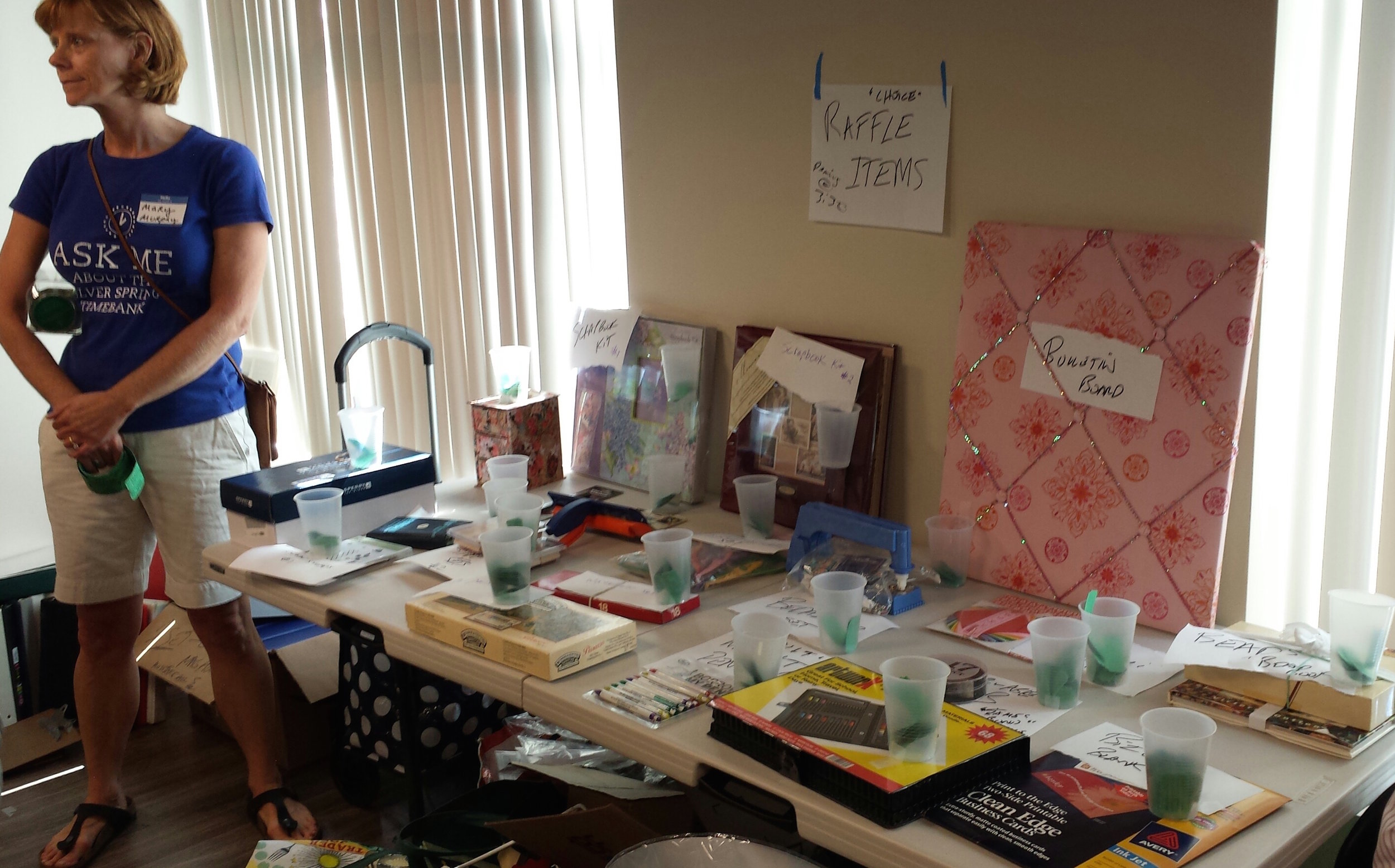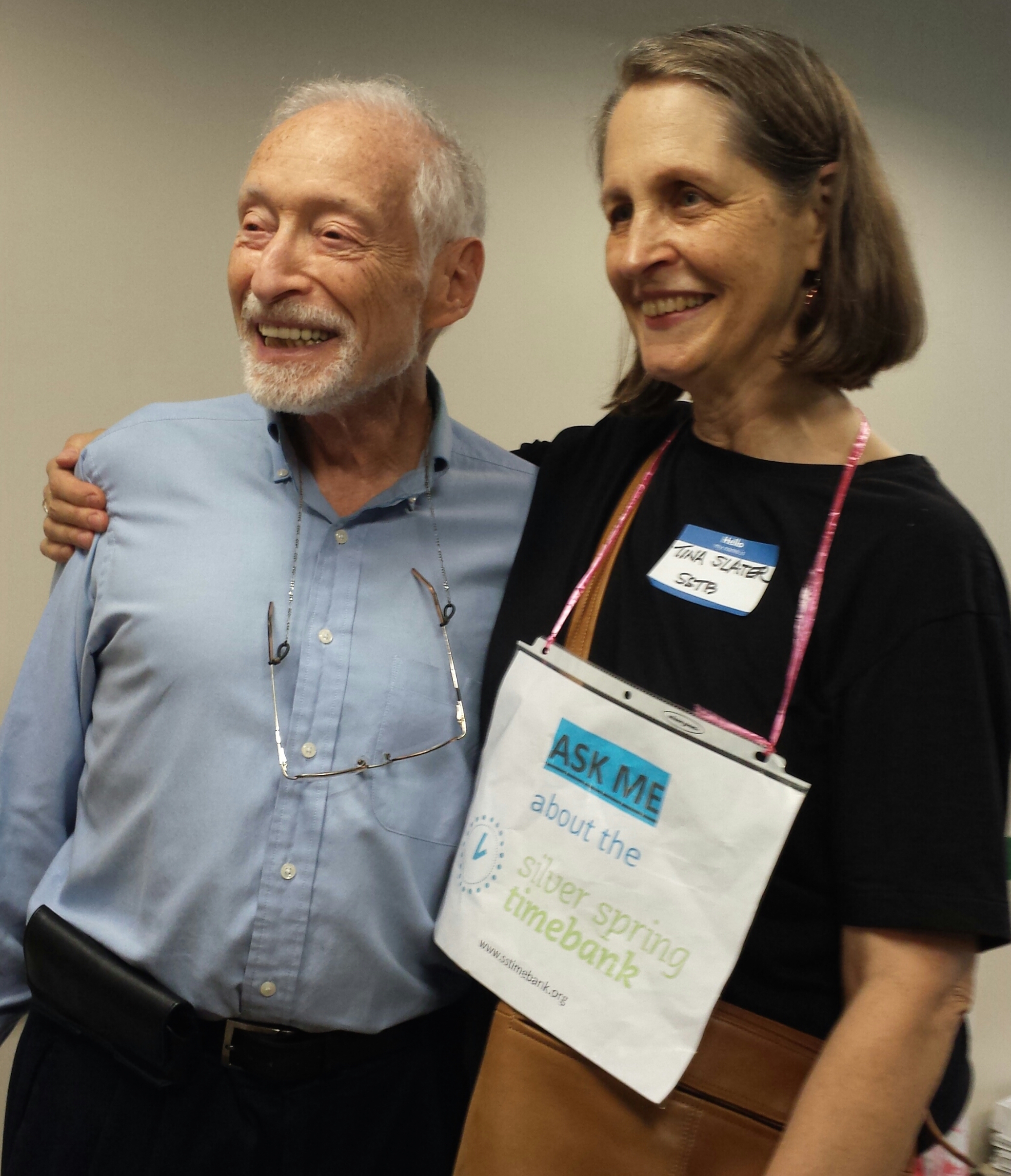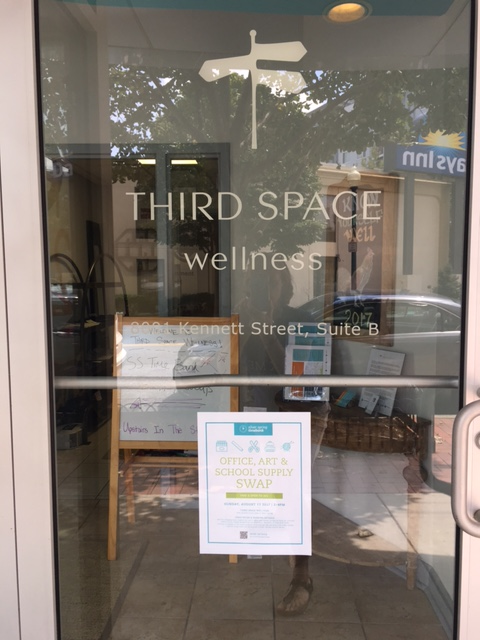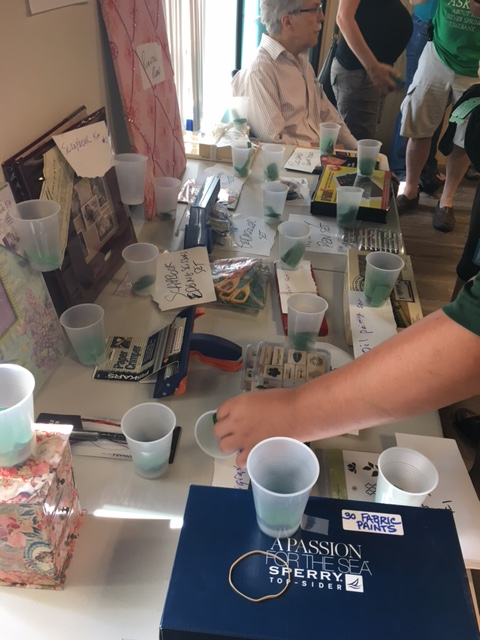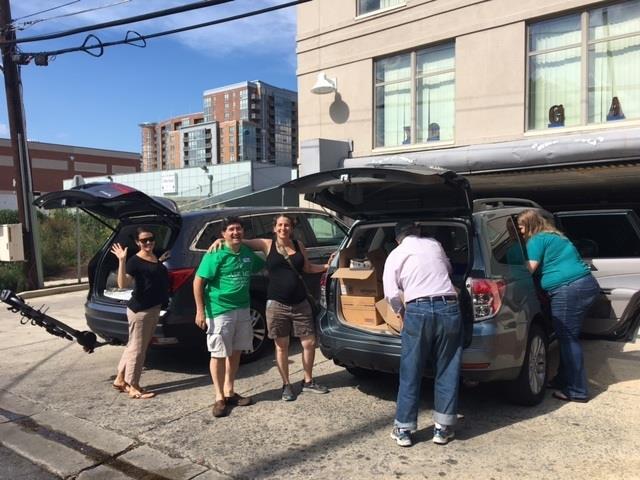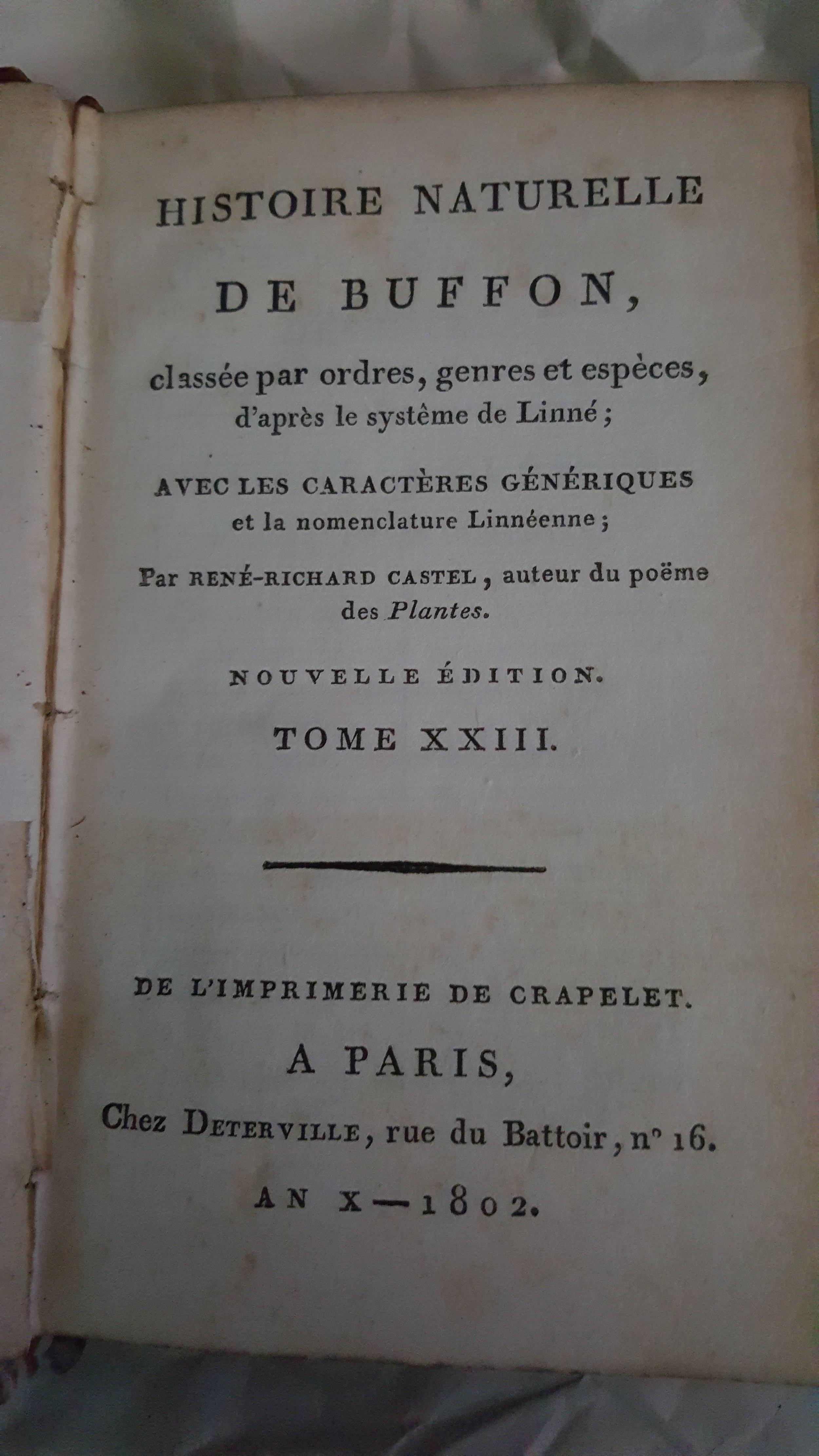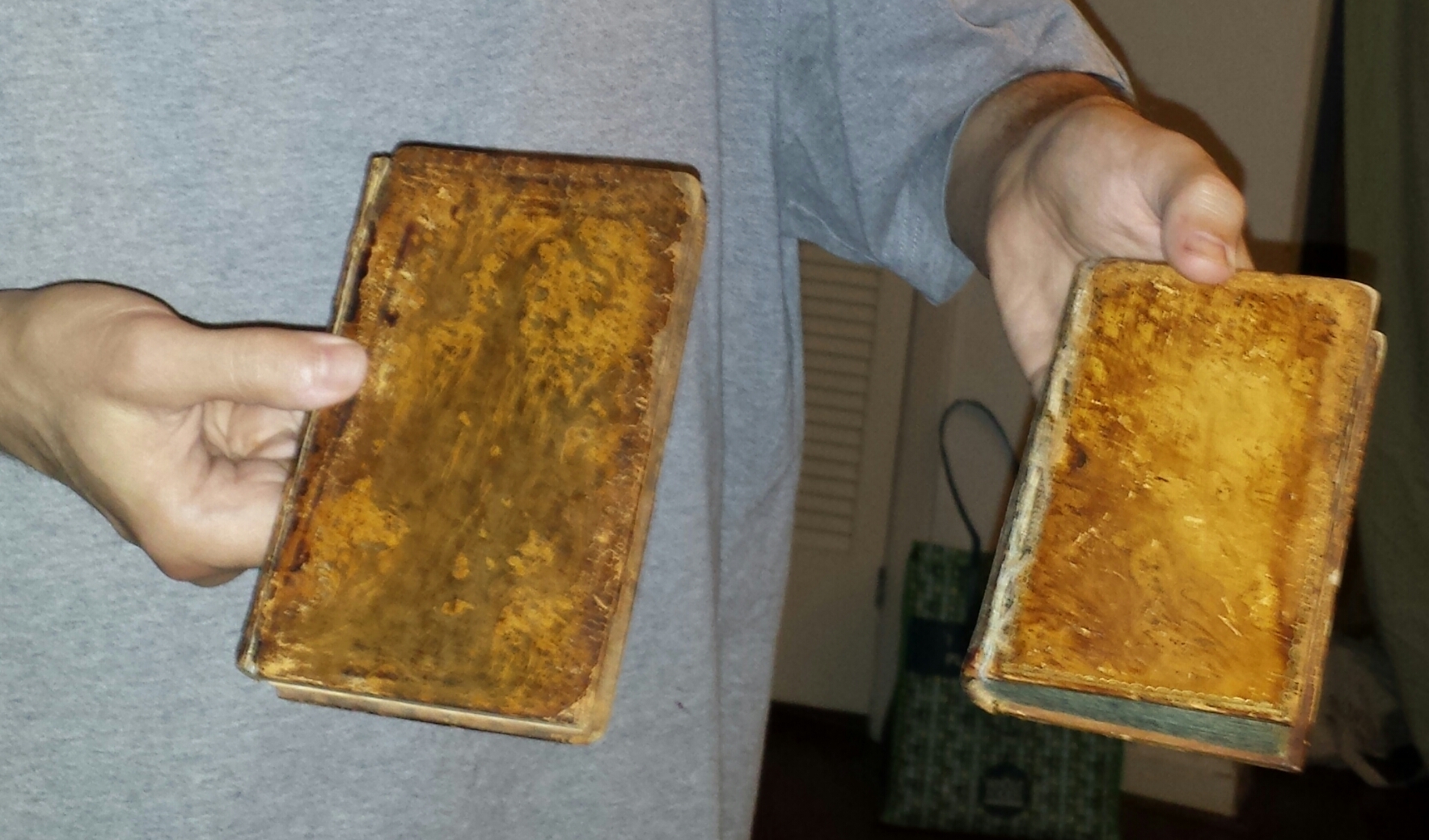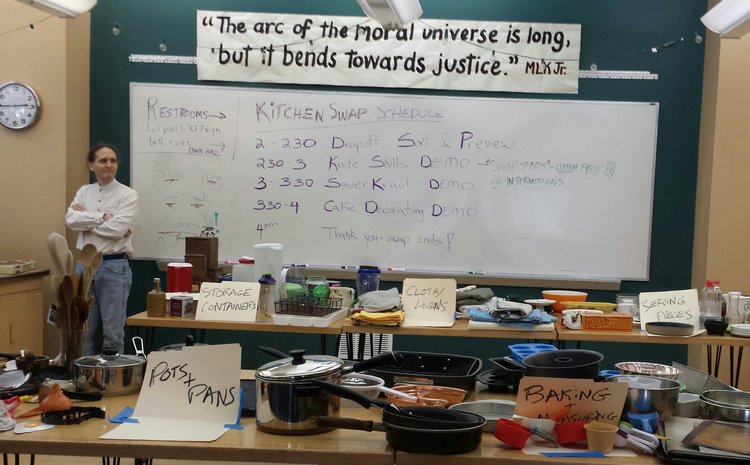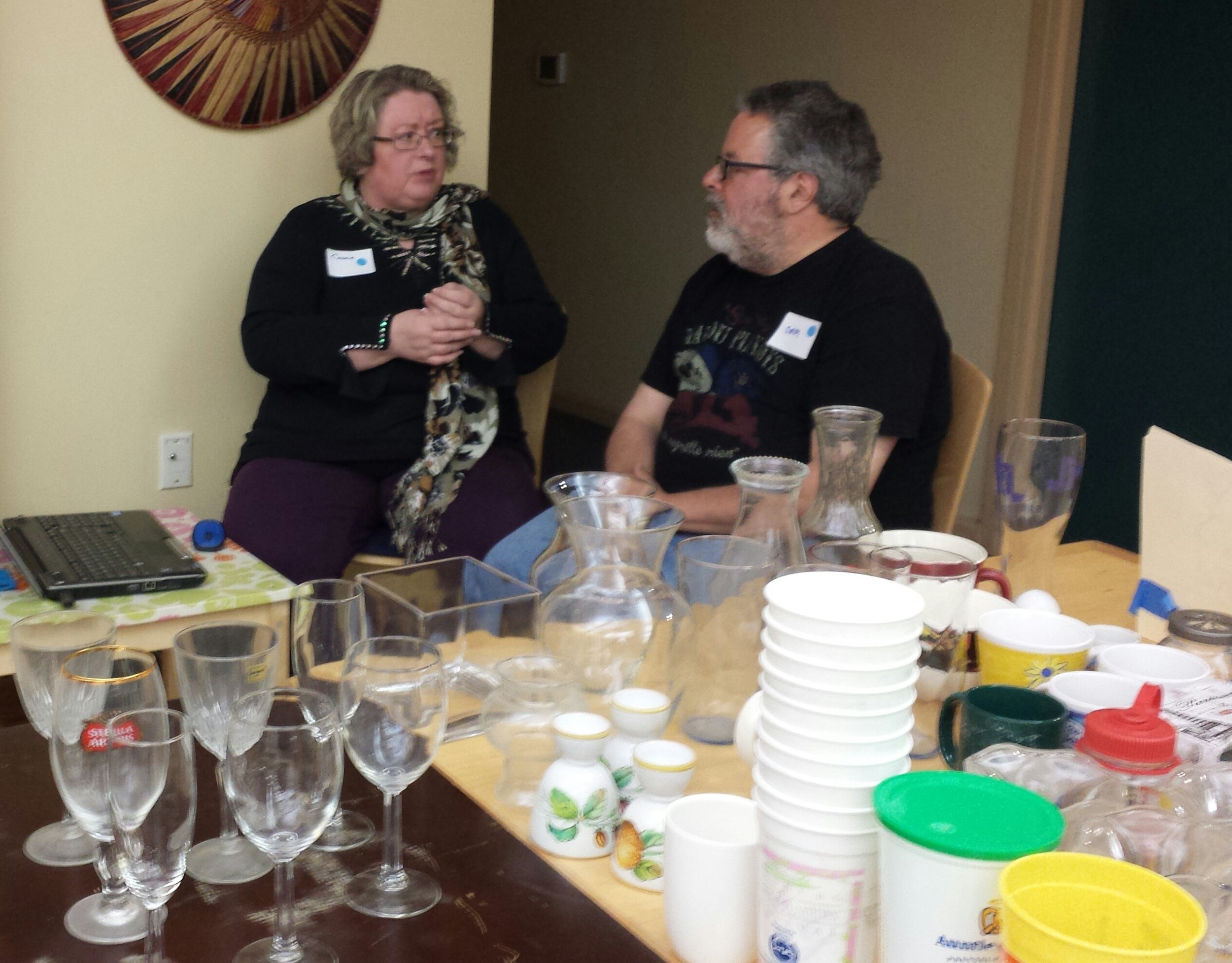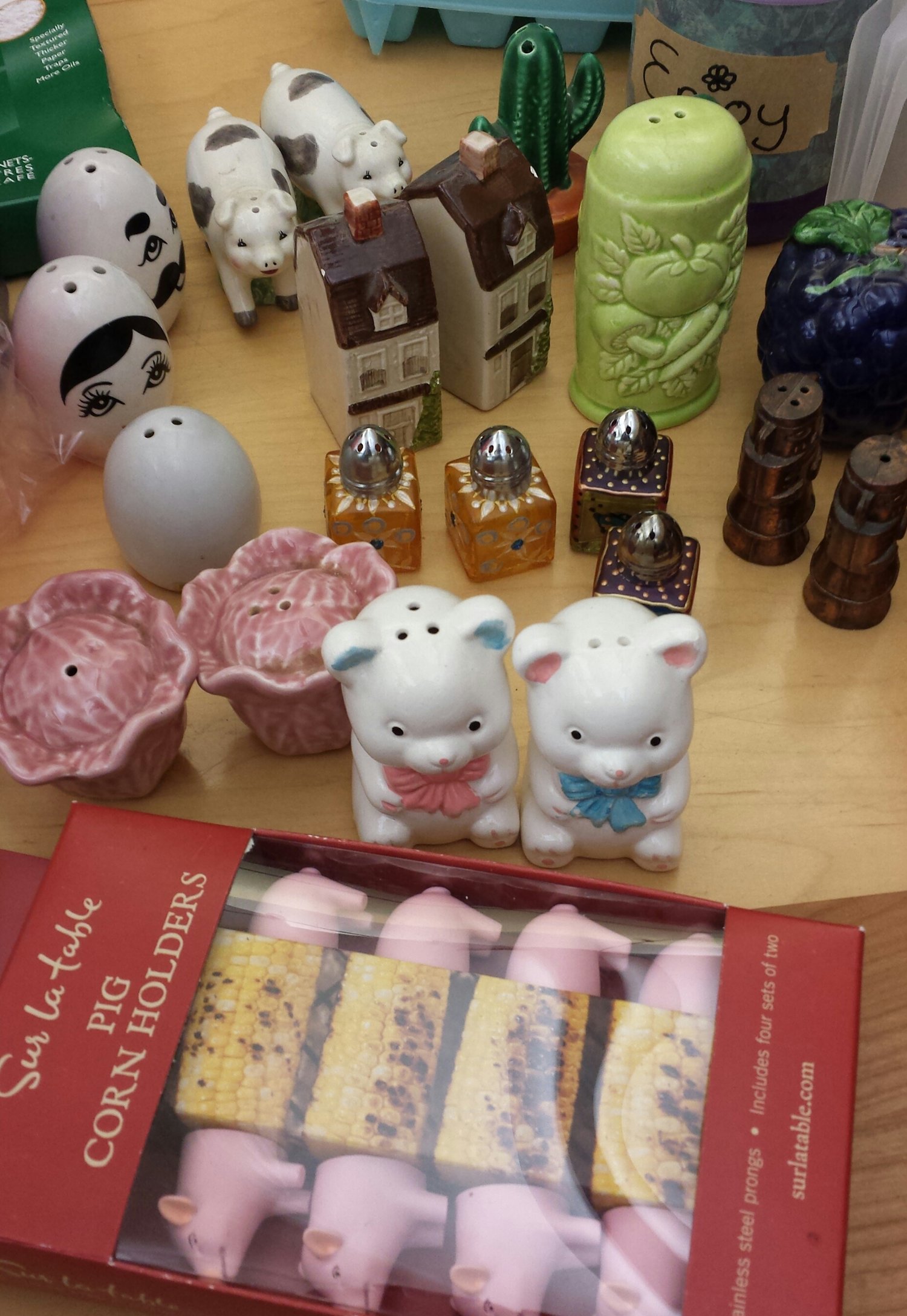There are times when we want to call in an expert and have her just do whatever needs to be done: shorten the trousers, unfreeze the computer, install the new wiring. And then there are people such as Jessica Arends, a former high school English teacher who joined the Silver Spring Timebank when she moved back to the D.C. area last year.
For Jessica, the Timebank is not just a way to get something accomplished—it’s a way to learn how to accomplish that task herself. “I don’t really use it as it’s sort of meant to be used-- I push on the boundaries a little bit,” she said. “I use it as a learning tool.”
The result is that Jessica, who holds a doctorate in curriculum and instruction from Penn State and serves as faculty engagement associate for the Center for Civic Engagement at Binghamton University, is becoming, as she puts it, more “blue collar.” “I use [the term] interchangeably with, ‘using your hands,’ because ‘blue collar’ can also be a class statement or a political statement, and I don’t mean it that way,” she said.
In particular, Jessica is using the Timebank to improve her carpentry skills even as she offers those same skills to others. “I have been able to network with other carpenters through the Timebank,” she said. “They show me what they’re doing and let me tag along.” Jessica concedes that tagging along might sound unorthodox. “It’s not a strict exchange, if you will,” she said. “It’s a softer form, of apprenticing.”
But that kind of exchange is just fine with Timebank member Willis “Win” Allred, who helped Jessica build a bed by creating a mock-up of a joint she could replicate at each corner and suggesting a different approach to supporting the headboard. “To me, that seems like a perfectly reasonable way to use it,” he said of the Timebank. After all, he said, showing someone how to do something is a service all by itself. “To me, that’s a sharing, and that’s the way I understand what we’re doing,” he said. “Sometimes it’s just knowledge, and sometimes, it’s the actual labor.”
Being really patient
Aviva Krauthammer met Jessica at a Timebank Skills Share event where Jessica was showing some of the tools she uses as a carpenter. “People had just finished doing a lot of renovations for my house, and [so] I had seen these power tools for the past 10 months, but I had never touched one,” Aviva said.
Jessica showed her how to use a circular saw, prompting Aviva to ask for her help in designing a table for her kitchen. “I was so impressed with Jessica because this isn’t necessarily her background or her field, but she had picked it up in the past few years and was such an amazing teacher,” Aviva said. “I felt more comfortable with her showing me the ropes because I felt like she was maybe in my position at one point, and she really was sensitive to, like, me having no idea what I was doing and being really, really patient.”
Feeling tired and satisfied
Jessica said the shift in her identity was inspired by workshops at Spring Creek Homesteading in State College, Pa., where Penn State is located. “It was very different from D.C., a very sharp contrast, and [it had] people who lived very close to the land, who lived a slower pace of life and [who], in some cases, in my opinion, had a quite high quality of life because of those things, and people who worked with their hands.”
Then in 2015, she took a class at the Hammerstone School in Ithaca, N.Y., which teaches carpentry to women. “After taking that class, it was like a fire was lit in me,” she said—not just to work with her hands, but to question the assumptions that had guided her life to that point. “It was completely different from the sort of implicit messages I got growing up, [such as finding work] that would not require the use of your hands or manual labor,” she said. “It was a very big change for me to say, ‘I want to get back to my hands.’”
Then again, she had never forgotten the hours she spent with her maternal grandfather, Eugene, as he did various carpentry projects. “He was always working on our houses, wherever we lived,” she said. “I was on hand to paint something or hand him the tools, and I was always really intrigued by what he was able to do—take pieces of something and build something that was sturdy and sound and useful. I was very much in awe of that ability, it was almost like a magical ability.”
In particular, she remembers when he built a porch on the back of the Arends’ family home, complete with screen door. “It was one of the coolest things,” she said. And so today, she is following in her grandfather’s footsteps, practicing a craft that lets her get out of her head. “My graduate training is to observe and to know something like, through the senses, and to analyze and to critique, and that can separate you from the moment,” she said “You’re no longer in the moment because you’re analyzing the moment.”
And so carpentry isn’t just carpentry, said Jessica, who became a Quaker in her 20s and attended Friends Meeting on Florida Ave. NW. “It’s the peacefulness of being outside and using a circular saw and that sort of meditative state when you’re following the line and using a saw to cut a piece of wood …, even on a day like today,” she said on the day the D.C. area got its first real snowfall of the season, “[It’s about] having that satisfaction at the end of the day that I, like, hauled huge piles of lumber …, and it was 28 degrees, and—boom, I feel incredibly tired and satisfied.”
Jessica will be giving a sauerkraut-making demo on Sunday, April 9, at the Timebank’s Kitchen Swap at Eastern Village Cohousing. She also coordinates an Alternative Economies Book Club that includes several Time Bank members. It meets on the fourth Thursday of each month at Kaldi’s Social House in Silver Spring.


